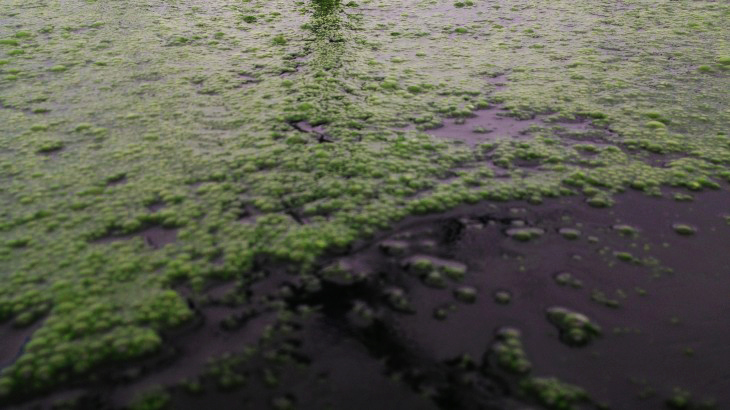Boliden grows algae to reduce emissions
Can growing algae help to reduce greenhouse gas emissions from the metals industry? That is the question that RISE and Boliden will investigate in a joint research project.
The ‘Microalgae cultivation for treatment of process emissions from the metals industry’ project, which is being financed by the Swedish Energy Agency, started recently and will run for two years at Boliden Bergsöe, where, among other things, lead from lead batteries is recycled.

“We need metals for a wide variety of technical applications, such as batteries, electronics and construction materials for a growing population, while greenhouse gas emissions also need to be reduced,” says Oskar Schlyter, Project Manager – Central R&D at Boliden Smelters.
The background to the project is a waste heat- and flue-gas-based method of growing algae that has been developed by the algae group at the independent state research institute RISE. The method has already undergone industrial testing at Nordic Paper Bäckhammar’s paper mill, where it cleaned flue gases and produced energy.
The algae cultivation method mimics the natural processes that underlie how fossil carbon and in particular oil were once formed. In the industrial version, flue gas is fed from a chimney into pools of water and microalgae that quickly produce biomass, predominantly from the carbon dioxide that is contained in the flue gas. In a dry state, the algae function as an energy carrier and can be used for the smelting processes at smelting plants. When the algae biomass is burned, metals that were previously in the flue gas are returned to the molten metal. It is possible to extract energy, clean water and flue gas, and produce metal ingots all at the same time.
“We expect that the concept will be able to deal with CO2 emissions, create energy for smelting metals, and clean metal emissions from the flue gas,” comments Niklas Strömberg, a researcher at RISE.
“Although algal cultures are effective at binding carbon dioxide, they require large areas. This project is important, therefore, so that we can assess the impact of these cultivations and the potential to reduce CO2 emissions, eutrophication and the spread of heavy metals, and at the same time evaluate whether or not algal biomass could have potential as a fuel for Swedish heavy industry,” says Niklas.